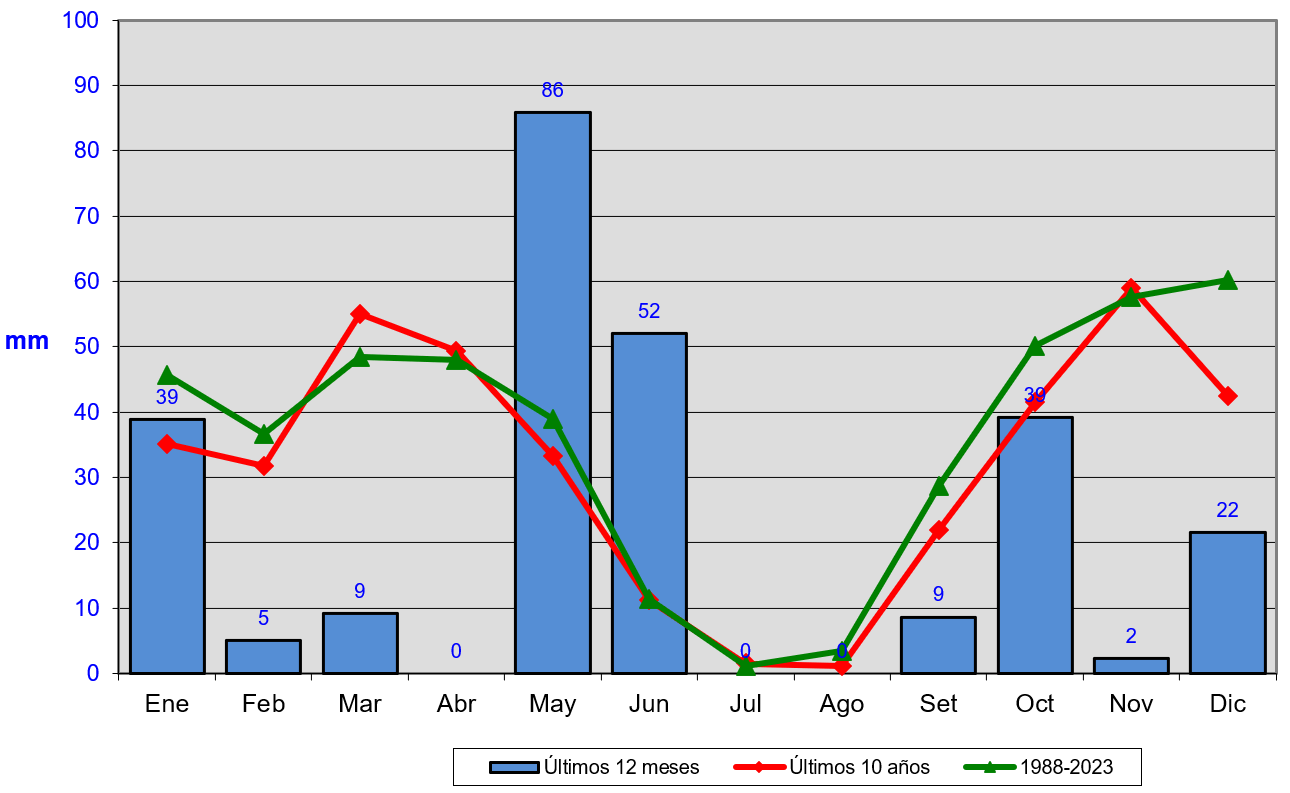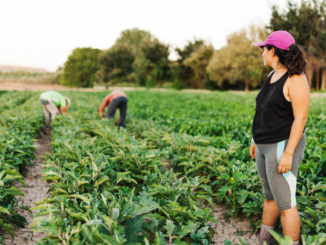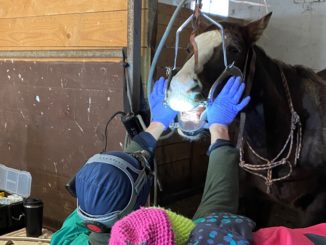
In times of tractors taking European streets, not all farmers wanted or could afford to protest. One example is Cortijo El Manzano in Campotéjar, rural Andalusia. For more than 40 years, this mixed and diversified farm has championed peasant agroecology and provided organic, local food outside mainstream agri-food systems. A tractor to protest, El Manzano does not have. But a long history of rural resilience in action. Instead of waiting for better policies, El Manzano and other allied farmers, restaurants, consumers have been working since 1986 to change the way society relates to food and organises itself via cooperatives for food autonomy within planetary boundaries.
Today, El Manzano is under increasing pressures from all sides: climate change, unfair markets, decaying rural housing, scarce rural labour, and more. When it comes to taking strong and immediate policy decisions for changing the course of things, the essential living and working conditions of farmers and rural areas are eclipsed by false solutions and neoliberal, ecomodernist visions of EU agri-food systems. Will El Manzano and many other agroecological farmers survive the current dramatic state of European rural areas?
In February, ARC2020’s Matteo Metta visited and worked on El Manzano, a farm deeply rooted in the living history of rural Andalusia, so rich in nuances, contrasts, and emotions, as expressed in the notes of flamenco and words of poets like Federico García Lorca. Farms like El Manzano are yet another concrete example of a rural bridge between sustainable agri and food systems, as outlined in the Marburg Action Plan. Unfortunately, the EU has failed to provide the promised framework for supporting this.
In a new series of letters from the farm, following on from his previous letter from Cuba, Matteo reflects on European agri-food-rural policies and trends. He sheds light on the nuances and multiple ingredients of rural resilience in the European Union, with a particular focus on rural housing, labour, energy and digitalisation as tangible impressions emerging from his short volunteering work experience in Spain.

From Brussels to El Manzano: the forgotten protests
When I arrived in Campotéjar, on February 10th, Spanish highways and media were starting to be busy with tractors and images of angry farmers. Spanish protests followed the wave of protests that occurred in Belgium, Italy, Germany, France and more. For me, big tractors and predominantly male farmers in the streets, demanding a system change without the larger mobilisation of society, was a symbolic illustration of the structure of European agriculture, so misrepresented, specialised, vulnerable, disconnected, and dependent on external capital resources: financial, private advisory services, chemicals, machinery and new technologies in the hands of corporations.
The amalgamation of protesters under the name of “European farmers” is being used to legitimise, or even reinforce the same corporativist establishment that brought us to this point, with little accountability for farmers’ organisations and more worryingly, little response to address root causes of systemic problems.
Farmers cannot be lumped together in one bloc, especially because of the diversity of the European farming community. There is little recognition to farmers who refused to be complicit in the current system and strived for a different one. There is little accountability for the few who actually benefit from this system. In any case, the current protests signal that for all farmers – big or small, organic or conventional – we need a change of direction: we are all part of a broken system with deep divides and unsustainable patterns.

I set foot in ‘el campo’ on an exceptionally cloudy and rainy weekend for rural Andalusia, accompanied on my journey to El Manzano by extensive fields of olive groves, blossoming almond trees, nostalgic rural ruins, and clean air. All this and some bumpy roads made me realise that I was no longer under the same grey sky in Brussels.

El Manzano is a two-hour walk from Campotejar Empalme bus stop, which is next to a petrol station just outside the pueblo (village). On the long way to the farm, I was chatting and sharing pictures of the Spanish countryside with my dad and mom, who live in the South of Italy. They could not believe the pictures of blossoming almond trees, so well ahead compared to Puglia and the winter season.

Before the arrival, I was aware that inconsistent rainfall and raising temperatures were a tough reality for El Manzano, as has systematically been the case for many years in Southern Europe, with only the difference that Central and North European countries are just starting to experience droughts and other dramatic effects of climate change more than before.
The blue bars in the figure below show that 2023 was an anomalous year for Granada province in terms of rainfall compared to the averages in the last ten years (red line) and since 1988 (green line). Except for May and June, 2023 was a traumatic year for many farmers in Granada province and Spain in general, especially olive farmers who experienced drought and high heat during the flowering phases. And ‘las sequías’ (droughts) in Spain are extending into 2024.

The agroecology journey of El Manzano (“the apple tree”) began when there were no agroecological schools, universities, and consultants. Around 50 people lived mostly in self-sufficiency around the ‘Cortijo’ (traditional rural dwelling), feeding themselves thanks to mixed farming, clean water pumped from the ground, and abundant skilled labour. The countryside was working and alive on a daily basis. On-farm events to bring new people to the countryside were not needed to break the feeling of ‘clausura’ and desolate life you can breathe today, here and in many other European rural areas.

Today, due to persistent droughts, decaying rural infrastructure, and cemented food habits and inequalities across agri-food systems, the future of this farm faces an abyss and could follow the path of many other farms that gave up a long time ago. Unless the course of things changes quickly and systematically.

A ‘flamenco’ approach to rural resilience
Today, this large, roughly 20 hectare farm, mixing multiple crops and animal production, located at 1200m, finds itself surrounded predominantly by olive groves and a depopulated rural landscape. The story of El Manzano can evoke a ‘flamenco’ approach to rural resilience, which is rooted in the living reality of peoples’ stories, and not in empty political frameworks and academic foresights. Today, El Manzano is not the perfect model, but at least it is concrete and delivers at many levels: organic food, sustainable farming, rural revitalisation, sovereignty.
El Manzano’s long history and concrete actions to global challenges can inspire European policies and places to revisit abstract, corporate-led, neoliberal frameworks. It breaks through the siloed approach used by European rural initiatives to date, when dealing with the transversality of rural matters, still too timid in relation to the latest EU efforts to deregulate GMOs, or the failures to provide a legal framework for the sustainable use of pesticides, food systems, land access, and groundwater use. The gap between el campo and el pacto – be it the European Farmers Deal, Green Deal, or Rural Pact – remains huge.

El Manzano finds its peers in those who have genuinely gone against the mainstream of many agri-food systems in the Mediterranean area. Similar to other corners of rural Europe, the dominant model built so far has pushed many Southern family farms to adopt unsustainable practices. Even today, the solutions being offered by corporations are walking the same industrialisation path that brought us to this dysfunctional system.
A clear example here in Campotéjar is visible in the contrasting quality between healthy and poisoned soils of olive groves with chemical herbicides. All this and more agri-food industrial changes pushed in the name of “feeding the world” have led to the marginalisation of many Southern rural areas at all levels: cultural, social, political, and so forth.

The story of El Manzano is one of a collective of workers and consumers walking together towards a different world. Rafa is the heart and soul behind El Manzano and the innovative project of a consumer-producer cooperative for own consumption (Cooperativa Integral Granaína). Meeting Rafa is a must for peasant agroecology. If you are not lucky like me, some videos about him can be found on YouTube, like here talking about goat farming or here talking about goat cheese making in a pub.
Along the ride, the people working and connected to El Manzano are aware of their own vulnerabilities and depend heavily on each other in terms of livelihood, nutrition, fair access to healthy food, learning rural competences, housing, ecology.

When talking about the recent farmers protests, Rafa told me:
“Many peasant farmers realised long ago that this system does not care about their fruits, their labour, their ecosystem. It is a system that operates first and foremost for profits. Many farmers were striving for a different model, but they were ignored. Today, many of the tractors and protesters in the streets of Madrid are there because they are being strangled: they followed the subsidies, the banks, the cheap fossil fuel, and the cash, no matter what. What you see unfolding is politicians and the rest of society expressing compassion in words or doing more of the same, but little is moving for a real transformation. Our freedom now must be to imagine something new with the rest of the society and get rid of dependencies that go beyond ourselves.”
Overall, droughts and lower levels of water in general are the number one and biggest concern for Rafa.

Coming up in the next letter from El Manzano: some ingredients of rural resilience from an Andalusian perspective – housing, labour, energy and digitalisation.
More letters from the farm
Letter From The Farm | Learning from a Campesino Family in Cuba
Farm to Forms – the Epicness of Trying to Establish and Run a Farm in France
Letter From The Farm | Restoring Nature, Improving Productivity
Letter From The Farm | The More-Than-Human Magic of Transhumance






